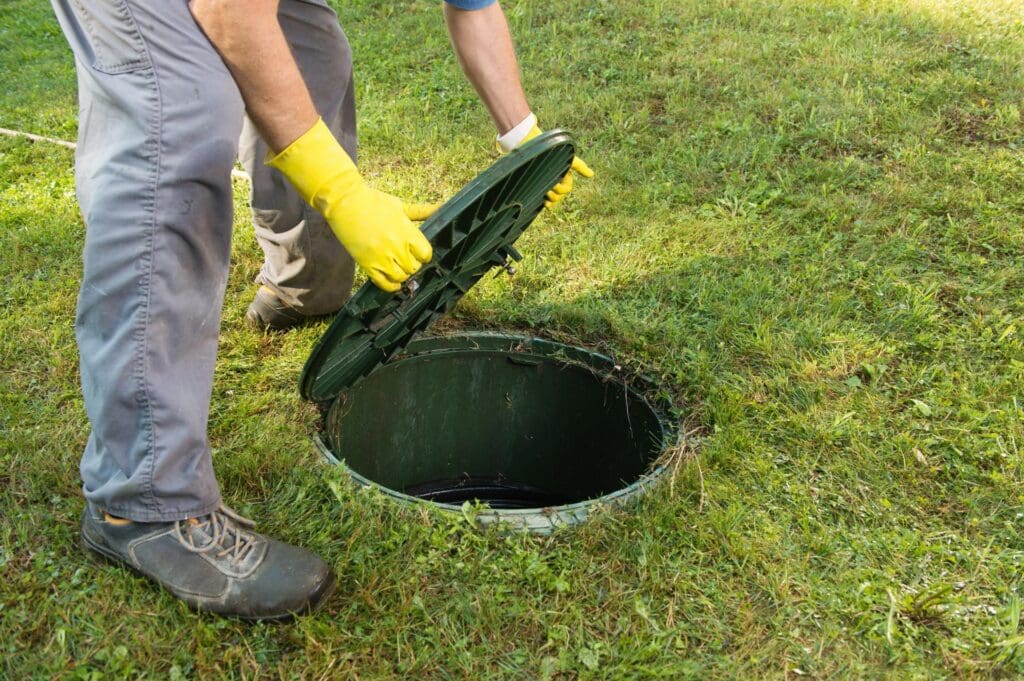Why Garbage Disposal Is Your Septic System’s Worst Enemy

Homeowners often turn to their garbage disposals for convenience in disposing of food waste. While this might seem like a harmless habit, it can have serious consequences for those with a septic system. A garbage disposal introduces solid waste directly into the septic tank, which can lead to increased pump-out frequency and long-term damage to the drain field. Understanding why a garbage disposal and a septic system don’t make a good pair is critical for maintaining an efficient and healthy wastewater treatment process in your home.
Knowing how a septic system operates and how food waste disrupts its balance can help you make informed decisions about household waste management.
How Garbage Disposals Affect Septic Tanks
A septic tank is designed to separate and process wastewater from your home. It allows solids to settle at the bottom, where natural bacteria break down organic matter, while liquids flow to the drain field for further treatment. This ecosystem is delicate and relies on maintaining the proper balance of waste, water, and bacterial activity.
When food waste from a garbage disposal enters the septic tank, it disrupts this balance. Unlike water or biodegradable human waste, food particles are denser and harder for the natural bacteria to break down quickly. Over time, these solids accumulate at the bottom of the tank, reducing its capacity to process new wastewater. The result is a need for more frequent pump-outs to remove the excess waste and avoid overloading the system.
Pump-outs can be costly and inconvenient, and frequent maintenance may indicate larger, avoidable issues within your septic system. By scaling back on garbage disposal use, you can better protect the health of your tank and reduce unnecessary expenses.
Increased Risk of Drain Field Clogs
The drain field plays a vital role in filtering wastewater after it leaves the septic tank. It allows treated water to percolate into the soil, where any remaining contaminants are naturally broken down. However, introducing excessive food waste into a septic system increases the risk of clogging this essential component.
Drain field clogs occur when solid particles that should remain in the septic tank escape and infiltrate the drain lines. Food waste can contribute to this because it often does not fully settle in the tank, especially when solids accumulate faster than the system can handle. Grease and fats from food waste exacerbate the problem, as they can solidify in the drain field and block the flow of wastewater. Clogged drain fields can lead to backups, foul odors, and in severe cases, the need for expensive repairs or replacements.
Addressing these issues involves not only repairing the drain field but also reestablishing proper septic tank operation. Preventing the introduction of food waste is a far simpler and more cost-effective strategy to avoid drain field problems altogether.
How Food Waste Impacts Bacterial Activity
A septic system relies heavily on the activity of natural bacteria to break down waste. These bacteria work best in an environment with a balanced mix of biodegradable materials and water. Food waste can upset this balance in several ways.
When large amounts of food are sent down the garbage disposal, they introduce substances that take longer to decompose, such as fibrous materials or high-fat solids. These materials can overwhelm the bacterial population in the tank, making it harder for the system to function efficiently. Additionally, the introduction of cleaning products often used to sanitize garbage disposals can also harm the bacteria, further reducing the tank’s ability to process waste. This combination of factors diminishes the system’s efficiency and lifespan.
Minimizing the use of garbage disposal ensures a stable environment for bacterial activity in the tank. This supports more effective wastewater treatment and helps extend the life of your septic system.
A well-maintained septic system not only safeguards your home from potential plumbing emergencies but also fosters long-term savings by minimizing the need for costly repairs or replacements. It is a proactive approach that begins with adjusting your habits and understanding the specific demands of your system.
If you’re facing septic system challenges or need expert guidance, contact us today.